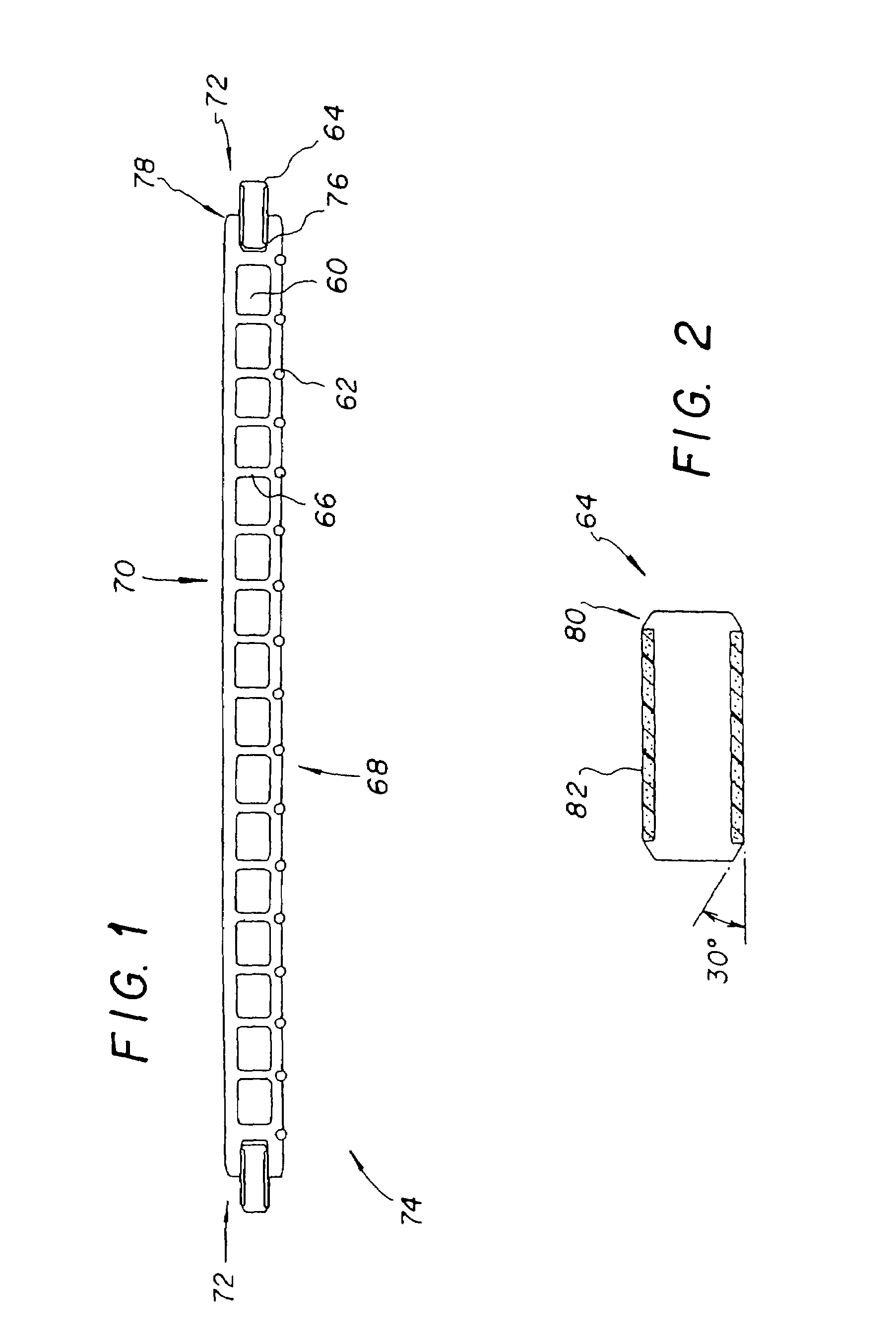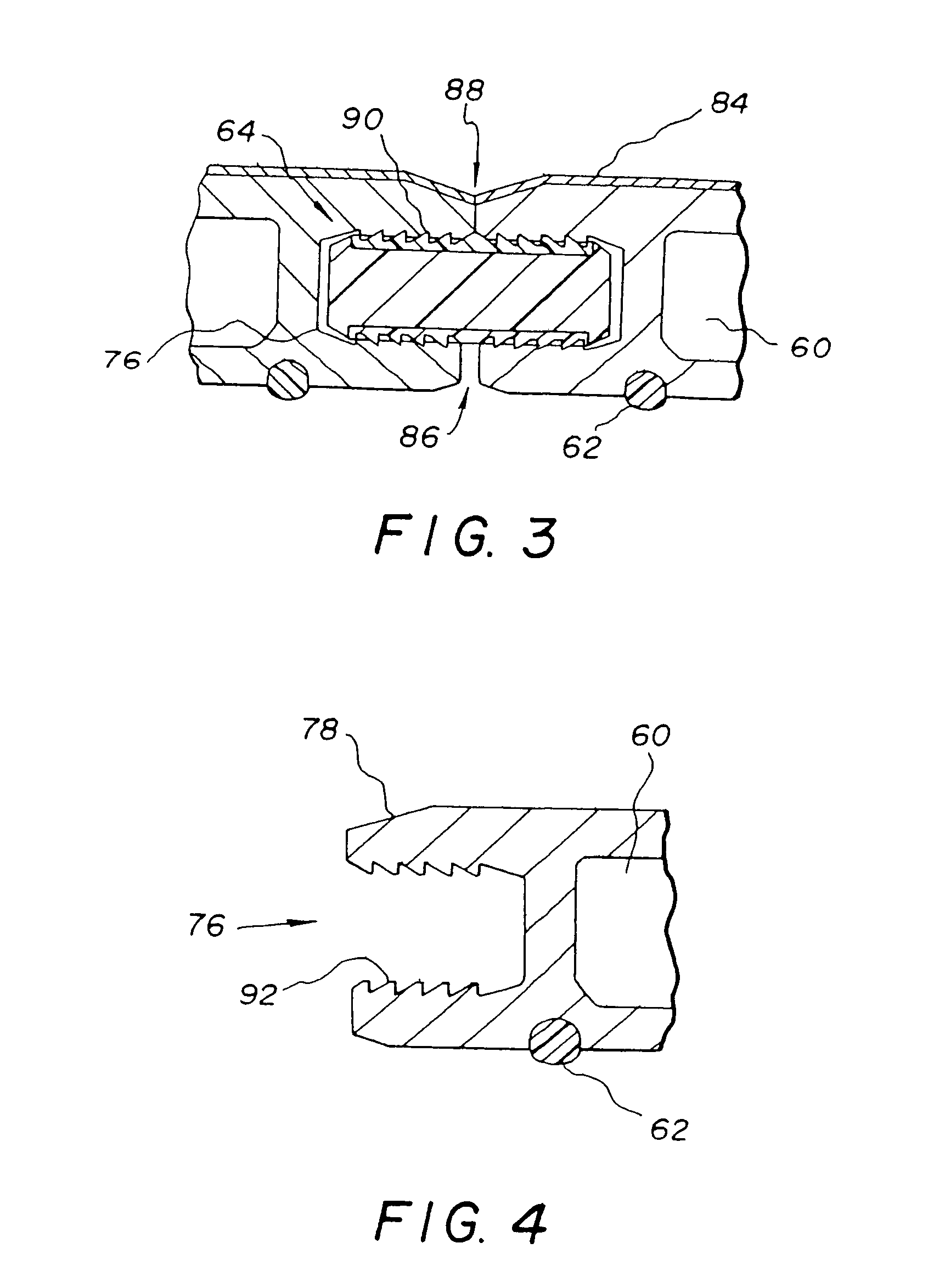Thermoplastic planks and methods for making the same
a technology of thermoplastic planks and thermoplastic sheets, applied in the direction of synthetic resin layered products, flooring, printing, etc., can solve the problems of cupping or doming of products, serious quality control issues and application restraints, and blistering and adhesion failure of melamine surfaces to the core, so as to improve moisture resistance
- Summary
- Abstract
- Description
- Claims
- Application Information
AI Technical Summary
Benefits of technology
Problems solved by technology
Method used
Image
Examples
example 1
[0101]Compound:
[0102]In one case a PVC compound containing impact modifier, filler, stabilizer and processing aids in the amounts below was extruded through a profile die giving a hollow cross section as shown in FIGS. 1, 5, and / or 6.
[0103]
IngredientAmount (phr)PVC Homopolymer100Thermal Stabilizer0.8–1.5Processing Aid0.5–1.0Impact Modifier3.0–4.0Lubricant internal0.6–1.0external1.1–1.5Filler20–35TiO21.5–3.0Barrel 1Barrel 2Barrel 3Barrel 4Barrel 5Barrel Temperatures, deg.345–360345–360320–340315–33090–110F.Oil Temperature deg. F. (through screw)285–300Die 1Die 2Die 3Die 4Die 5Die Temperatures, deg F.345–360360–370360–370380–390370–380Percent Load 63–75%Main RPM 950–1100Output 356–550 pounds / hr (163–250 kg / hr)Back Pressure 18.1–19.0 metric tonsMelt Pressure4,075–4500 psiMelt Temperature, deg. F. 385–390Color Feeder 0.35–0.70 pounds / hr (setting of 5 for 0.35, setting of10 for 0.70)Line Speed 8.5–8.75 feet / minCalibration Unit:Vacuum 1 16–20 in HgVacuum 2 17–20 in HgVacuum 312.5–...
example 2
[0120]A series of thermoplastic planks similar in design to the planks formed in Example 1 were connected together to create a flooring system. The spline system as set forth in FIG. 3 was used. In addition, a comparison was made with using no bonding agent and a flooring system using a bonding agent. The bonding agent, tetrahydrofuran (THF) was applied to all sides of the plank including the spline and grooves. When no THF was applied to the spline area, the bonding strength was an average of 1.73 pounds using the Instron test with the following parameters: 50 pounds full scale for the chart paper, 0.5 in / minute jaw speed, 3 inch jaw distance, 1×5 sample, 156 mil spline thickness. When the same type of extrusion plank had THF applied to the spline area, after 4 hours curing, the bonding strength of the spline area was an average of 18.1 pounds and after 24 hours curing, the bonding strength of the spline area was 39.1 pounds. The ends of the extrusion plank were tested for bonding ...
PUM
| Property | Measurement | Unit |
|---|---|---|
| length | aaaaa | aaaaa |
| length | aaaaa | aaaaa |
| width | aaaaa | aaaaa |
Abstract
Description
Claims
Application Information
 Login to View More
Login to View More - R&D
- Intellectual Property
- Life Sciences
- Materials
- Tech Scout
- Unparalleled Data Quality
- Higher Quality Content
- 60% Fewer Hallucinations
Browse by: Latest US Patents, China's latest patents, Technical Efficacy Thesaurus, Application Domain, Technology Topic, Popular Technical Reports.
© 2025 PatSnap. All rights reserved.Legal|Privacy policy|Modern Slavery Act Transparency Statement|Sitemap|About US| Contact US: help@patsnap.com



